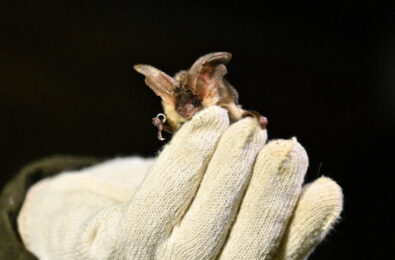Happier Bees, a Healthier Planet and more Flavours of Honey!

Exciting news from Lucy King (FFN Award winner 2013) and her team! The results of their latest research study on African honey beehive fences in Sagalla, Kenya, suggested that the beehive fences do not have a negative effect on other wild bee communities living in the area.
Elephants are seen as the most damaging of the crop-raiding animals. Earlier research showed that elephants are alarmed by the sound of angry bees. This discovery encouraged Lucy to develop and test the African honey beehive fences to protect farms from elephants and provide income for the farmers. A win-win situation!
With the adaptation of the beehive fences, the concern arose that the frequency of African honeybees would increase and that other ecologically important bee species would be outnumbered. However, according to Lucy’s recent study, this does not seem to be the case. The frequency of honeybees was low and did not vary between the beehive and control fences. Additionally, little difference in the amount, species richness and community composition of the local wild bees was found when farms with and without beehive fences were compared.

Besides this, results showed that the farms have a significantly greater amount of flowering plants! This could be because the bees are so happy and busy that their pollination activity has increased the amount of flowering plants. A second possibility is that the farmers have stopped cutting down plants, leading to more flowering plants to feed their bees and to be pollinated.

















